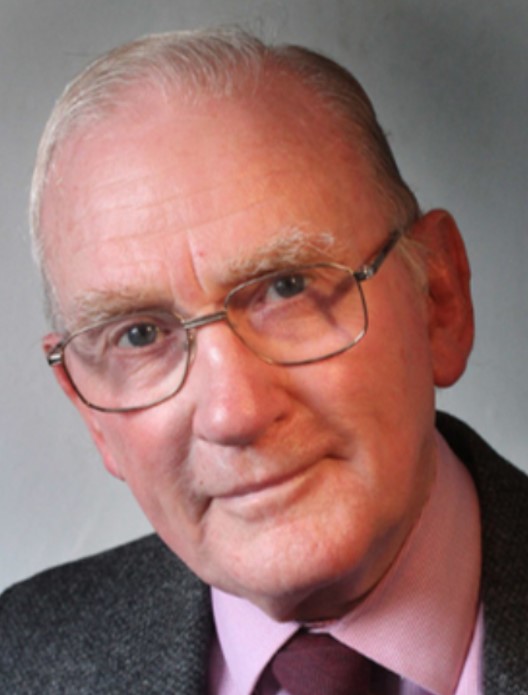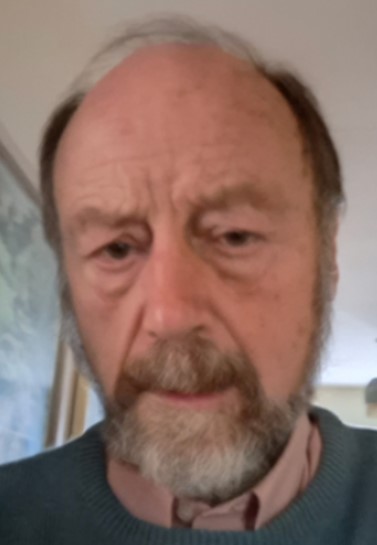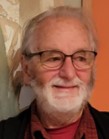top of page


Editor’s welcome
Congratulations to our founding editor David Brittain who has been invited to a Humanists UK dinner on Tuesday 4th November to celebrate the appointment of the UK Armed Forces first ever humanist pastoral carer. David led the UK Armed Forces Humanist Association at a critical juncture, helping to lay the foundations for its eventual success. Our main theme for this issue is radicalisation. ‘Radical’ is a word with an honourable past. It comes from the Latin radix meaning root

David Warden
Oct 31, 20252 min read


A humanist milestone in the armed forces
By David Brittain The appointment of the first Humanist chaplain in the British Armed Forces marks a historic moment – and one that has personal significance for our founding editor, who helped build the bridge between Humanists UK and the Ministry of Defence more than a decade ago. David is the Founding Editor of Humanistically Speaking and founder of the UK Armed Forces Humanist Association (UKAFHA). This month brings a remarkable milestone for the humanist movement in the

David Brittain
Oct 31, 20253 min read


What is radicalisation? And is it compatible with humanism?
By David Warden In this article, David attempts to clarify what distinguishes humanist conviction from the kind of certainty that can tip into radicalisation. David is chairman of Dorset Humanists and editor of Humanistically Speaking . This month’s issue of Humanistically Speaking examines radicalisation from multiple angles – from the grip of violent extremism explored by Anthony Lewis, to the contested boundaries of protest in Maggie Hall’s reflections on Just Stop Oil an

David Warden
Oct 31, 20253 min read


When people stop talking: understanding radicalisation
By Dr Anthony Lewis In this article, Anthony reflects on how violent extremism can take hold, as it did in Northern Ireland. He warns that extremists always seek to erode hard-won democratic freedoms through censorship, intimidation and terror. Although the processes of radicalisation are well understood, they are still not being effectively disrupted. Anthony argues that the best way to counter political extremism is to reassert – rather than restrict – the principles of

Anthony Lewis
Oct 31, 202516 min read


Extremist, terrorist – or just plain fed up?
By Maggie Hall In this article Maggie questions the government’s decision to designate Palestine Action a terrorist organisation. Reflecting on the case of an 83-year-old retired vicar arrested for holding a placard, she explores how the definition of terrorism is being stretched to include non-violent protest. Maggie is a retired teacher of speech and drama, a former Chair of Brighton Humanists, a member of the Humanists UK Dialogue Network, and a Humanists UK School Speaker

Maggie Hall
Oct 31, 20256 min read


Fundamentally Flawed: what fiction misses about ISIS and radicalisation
By Sophy Robinson Sophy draws on her West London book club’s reading of Fundamentally – a prize-shortlisted novel about a young academic’s attempts to deradicalise an ISIS bride – to explore the real-world issues the book only skims. Moving beyond fiction, she investigates the continuing threat of ISIS, the radicalisation of young people online, and the complex moral and political questions surrounding women like Shamima Begum. Sophy is a former trustee of Humanists UK. The m

Sophy Robinson
Oct 31, 20258 min read


Love, Anger & Betrayal by Jonathon Porritt
Book review by Maggie Hall Maggie reflects on Jonathon Porritt’s passionate new book about the young activists behind Britain’s climate protest movement – the same generation that threw soup at Van Gogh’s Sunflowers . Porritt’s interviews reveal the love, fear and moral conviction driving their actions, and his fierce criticism of the harsh new laws that criminalise peaceful protest. Maggie finds the book both moving and unsettling, challenging readers to rethink their own v

Maggie Hall
Oct 31, 20256 min read


How to become an extremist: a handy 10-point plan, absolutely free!
By Dr Anthony Lewis This handy 10-point guide to fast-track self-radicalisation is a piece of sharp, dark humour designed to expose the mechanics of extremism: slogans over substance, victimhood as identity, outrage-as-performance, and the cult of the charismatic leader. Read it as satire – a cautionary mirror showing how movements fray into fanaticism when reason, empathy and scepticism are abandoned. Trigger warning – this is a parody; don’t try any of it! Here's Humanistic

Anthony Lewis
Oct 31, 20252 min read


Media Watch: an insight into Orthodox Judaism and an interview with Michael Rosen
Inside the BBC’s New Series Prayer and Reflection : Orthodox Judaism There's a new addition to the already generous religious output on the BBC, a TV programme called Prayer and Reflection , which is being broadcast on Sunday mornings on BBC1. According to the programme’s website it is ‘ an invite into sacred spaces across all four nations, from six of the UK's major faiths, during personal moments of spiritual and religious connection ’ . The first episode appeared, to my su

Maggie Hall
Oct 31, 20253 min read


AI is changing what it means to be human: should we be worried?
By Mike Flood As AI reshapes every aspect of modern life, what does it mean to be human in a world where machines can think, create, and even feel? Mike Flood reflects on the ethical and philosophical implications of Artificial Intelligence – and what the humanist response should be. Mike is Chair of Milton Keynes Humanists and Humanism for the Common Good. He is writing here in a personal capacity. ‘We call for a prohibition on the development of superintelligence, not lifte

Mike Flood
Oct 31, 202511 min read


My dream future for the development of science education
David McKnight is a retired science teacher and a Nuffield Chemist. He has a BSc Honours degree in Metallurgy and a Master’s degree in Education from Reading University. In 2007, he founded Humanists4Science – a group of humanists with an active interest in science. David is now looking to pass the baton on to a new generation of leaders and volunteers. This article draws on his e-book entitled A Personal Glimpse of (My Dream) Future for the Development of Science Education :

Humanistically Speaking
Oct 31, 20253 min read


A different perspective: a reply to David Warden on Israel and Palestine
By John Baxter John Baxter is a retired head of Religious Education at Bristol Grammar School. He is a Buddhist and a humanist, and he lives in Somerset, UK. He was raised in apartheid South Africa. He has debated David Warden on the topic of Israel/Palestine at the Anvil discussion group in Wincanton, Somerset. This article was written before President Trump's peace plan came into effect. David has responded to some of John ’ s criticisms in a separate artic le. Palestiniani

John Baxter
Oct 31, 20259 min read


The tragedy of Palestinianism: a response to John Baxter
By David Warden David is the humanist representative on the Bournemouth & Poole Holocaust Memorial Committee. In this article, writing in a personal capacity, he responds to some of the criticisms made by John Baxter of his article on anti-Zionism in our August issue. I'm very grateful to John Baxter for his detailed reply to my article about anti-Zionism in our August issue. I can't respond in detail to every point he has made because it would make this article far too long

David Warden
Oct 31, 202514 min read


Antisemitism, the Left and 1967
By Lloyd Hawkeye Robertson In this article, Lloyd reflects on his early years in the socialist Left and how its attitudes toward Israel and Jews evolved after 1967. Re-examining old assumptions about empire, Zionism and oppression, he argues that parts of the modern Left have turned anti-Zionism into a new form of antisemitism. His essay calls for a return to Enlightenment reason, compassion and open dialogue as the true foundations of humanist thought. Lloyd is President of

Lloyd Hawkeye Robertson
Oct 31, 20259 min read


The evolutionary advantage of doubt: how scepticism fuels scientific and ethical progress
By David Falls In this article, David explores how scepticism has driven humanity’s greatest advances in science, ethics and understanding. From Galileo’s defiance before the Inquisition to the moral reasoning of modern secular societies, he traces the evolution of enquiry itself: how doubt became one of our species’ most powerful survival instincts and an effective antidote to dogma in every age. After a 33-year career with Microsoft, David now writes about the ethical and

David Falls
Oct 31, 20257 min read


What does it all mean? Finding humanist meaning in religious words
By Dr David Mayston In this wide-ranging reflection, David Mayston explores how words traditionally associated with religion – such as God , Spirit , Faith , and Being – can be reinterpreted through a humanist lens. He shows how familiar religious language may express deeply human values of love, creativity, and compassion without invoking the supernatural. By uncovering the rich secular meanings within these ancient words, David invites us to see humanism not as the absen

David Mayston
Oct 31, 20257 min read


Rethinking Jesus: the morality, the myth, and the silence
By David Falls Jesus is often upheld as the ultimate moral guide – his words quoted in courtrooms, classrooms and campaigns as timeless truth. But can his teachings withstand the test of reason? In this searching essay, David Falls re-examines the morality and mythology of Jesus. Having retired from Microsoft after a 33-year career, David now writes about the ethical, scientific and philosophical forces reshaping how we understand consciousness, identity and progress. His w

David Falls
Oct 31, 20257 min read


Tod’s Take: how I chose my 50-year career in two seconds
By Tod Lundy Sometimes the most important decisions in life take only two seconds. In this reflective memoir, Tod Lundy looks back on how a single chance encounter in a university corridor changed the entire course of his life. A story about mentorship, intuition, and the surprising ways we find our purpose in life. This is the first in a series of personal reflections from Tod, using stories from his own life to uncover ideas with universal relevance. Tod is a retired archi

Tod Lundy
Oct 31, 20254 min read


Should we tolerate sexual intercourse on a bus? John Stuart Mill on liberty
By Dr Peter Connolly Before his retirement, Peter Connolly was senior lecturer in Religious Studies at the University of Chichester where he taught courses on Ethics, Indian Religion and Psychology of Religion. He has also worked as an associate lecturer in both Psychology and Religious Studies with the Open University. On 12th April 2025, Peter gave this talk to Dorset Humanists in Bournemouth. Some notes and illustrations have been added. John Stuart Mill Introductory note

Peter Connolly
Oct 31, 202522 min read


When statues moved: reflections on faith and the Troubles
By Anthony Lewis NORMALITY Rock statues move in their free state Minds stay still to segregate Ear drums burst by deafless talk Whilst in their snare the gunmen stalk Intractable the land is rich A sutured gash and coarsened stitch A garment worn to hide the wound Sixes all from view entombed In the ground and still alive Normality that must survive © Antz Lewis 1985 Biographical note Growing up in Northern Ireland during the 'Troubles' was a great education in intolerance. L

Anthony Lewis
Oct 31, 20251 min read
bottom of page
